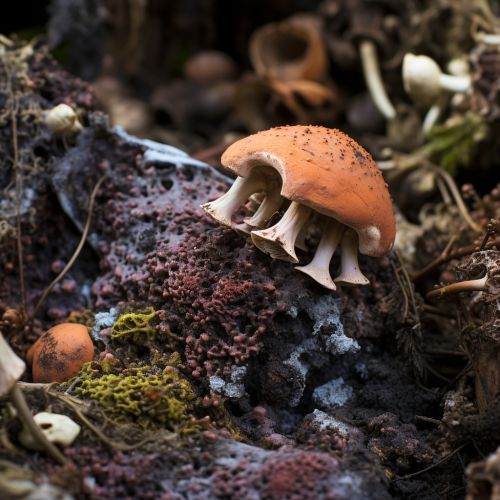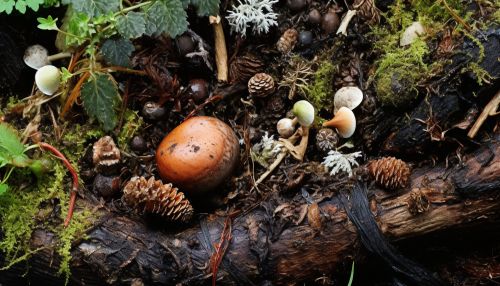Decomposition
Introduction
Decomposition is a fundamental process in ecology that involves the breakdown of organic substances into simpler organic or inorganic matter. This process is primarily carried out by decomposers, organisms that consume dead organic material and convert it into nutrients that can be reused by other organisms in the ecosystem.


Process of Decomposition
Decomposition is a complex process that involves several stages and a variety of biological, chemical, and physical phenomena. The process begins immediately after an organism's death when autolysis, the breakdown of cells by their own enzymes, starts to occur. This is followed by putrefaction, which is the breakdown of tissues by bacteria and fungi. The final stage of decomposition is skeletonization, where only the hard tissues like bones and teeth remain.
Factors Influencing Decomposition
Several factors can influence the rate and extent of decomposition. These include the nature of the dead material, environmental conditions, and the presence and activity of decomposers. For example, materials rich in easily digestible sugars decompose faster than those rich in complex compounds like lignin and cellulose. Similarly, decomposition is faster in warm, moist environments compared to cold or dry ones. The presence of decomposers like bacteria, fungi, and invertebrates also significantly influences the decomposition process.
Role of Decomposers
Decomposers play a crucial role in the decomposition process. They are organisms that break down dead organic material and convert it into simpler substances that can be reused by other organisms. Decomposers include bacteria, fungi, and certain types of invertebrates. Bacteria and fungi are the primary decomposers in most ecosystems, breaking down organic material at a molecular level. Invertebrates like earthworms, beetles, and flies, on the other hand, help in the physical breakdown of organic material, making it more accessible to microbial decomposers.
Decomposition and Nutrient Cycling
Decomposition is a key component of nutrient cycling, the process by which nutrients move through an ecosystem. Through decomposition, nutrients contained in dead organic material are released back into the environment, where they can be taken up by plants and other organisms. This process is essential for maintaining the productivity and stability of ecosystems.
Human Influence on Decomposition
Human activities can significantly influence the decomposition process. For example, land use changes, pollution, and climate change can alter the conditions that affect decomposition, potentially disrupting nutrient cycling and other ecological processes. On the other hand, humans can also harness the decomposition process for beneficial purposes, such as in composting and waste treatment.
